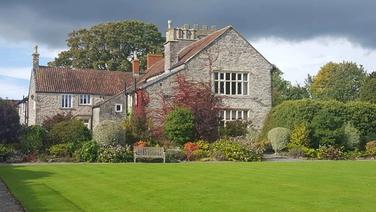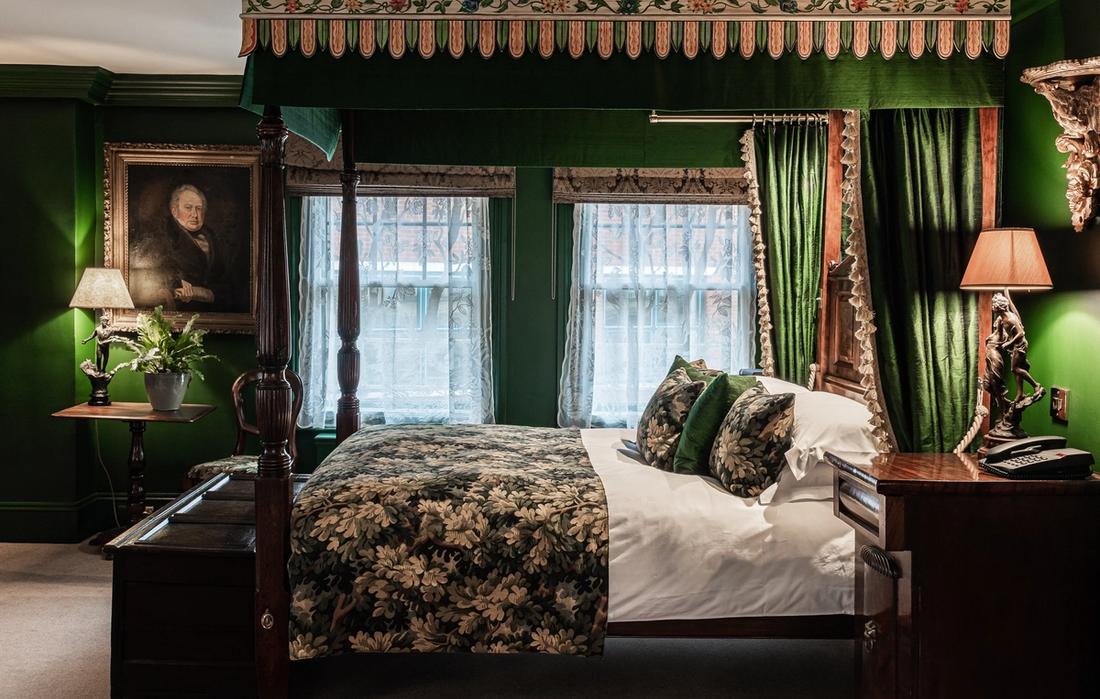The Good Hotel Guide is the leading independent guide to hotels in Great Britain & Ireland, and also covers parts of Continental Europe. The Guide was first published in 1978. It is written for the reader seeking impartial advice on finding a good place to stay. Hotels cannot buy their way into the Guide. The editors and inspectors do not accept free hospitality on their anonymous visits to hotels. All hotels in the Guide receive a free basic listing. A fee is charged for a full web entry.
The Good Hotel Guide
About Us
Independent
Recommended
Trusted
Independent
Recommended
Trusted

Fighting back
All blog posts
5 minutes
16 Feb 2021
Fighting back
All blog posts
5 minutes
16 Feb 2021
By Adam Raphael

Why are so many hotels and B&Bs closing? The short answer is that they have no reserves to combat the disaster of Covid-19. Most have been squeezed dry over the years by commissions levied by online travel agencies. A Which? Travel investigation last year found that guests are paying up to 12% too much for hotel rooms in the UK because of payments to intermediaries. But hoteliers are at last fighting back.
Many of the Guide’s selected hotels are saying that they are determined to cut back, and if possible free themselves entirely, on links to Booking.com and other OTAs. The Guide has long advocated this. Commission payments of up to 25%, levied by third parties, are a burden on the industry and a source of inflation. But until now few properties, even those with an established reputation, have felt confident enough to rely on their own marketing efforts to fill their rooms. But one thing Covid-19 has done is to make hoteliers think again about their business. The simple truth is that life post-virus is not going to be the same. Christopher Trim, co-owner of Old Church Farm, a luxury B&B near Bristol, says that Booking.com is using part of its 15% commission to undercut his own web rates by 6% in breach of a rate parity agreement. ‘We continue to find thousands of pounds a month to keep the business solvent so that we can reopen when customers return’, he says. ‘When we do, must we suffer the vultures forever?’ Keith Makepeace, the owner of Soar Mill Cove in Devon, says: ‘We got rid of the OTA’s having had enough. We paid more than £402,000 in commission last year.’
The problem for hoteliers is that OTAs are an important source of guests. Two-thirds of visitors looking for a hotel, according to the Competition and Markets Authority, consult an OTA before deciding where the stay. The prominence on search pages given by Google and other search engines to OTAs with their multi-billion marketing budgets ensures their dominance. Unfortunately, guests often do not realise that they are booking through a third party. A survey by the American Hotel and Lodging Association found that nearly a quarter of travellers had been deceived in this way, a four-fold increase over a previous survey three years ago. And even fewer travellers realise that the huge, apparently fiercely competitive OTA market is dominated by two huge American corporations, Expedia and Priceline, which control 95% of the business. Expedia has thousands of online affiliates including Trivago, Tripadvisor, Travelocity, Hotwire and Hotels.com. Priceline, likewise, has numerous subsidiaries trading under different names from Kayak and Booking.com to Agoda, and Rentalcars.com.
The dominance of these two $100 billion conglomerates requires action, but so far politicians have been reluctant. The Competition and Markets Authority (CMA) has published a study which suggests that many of these online booking sites are abusing their dominant position by misleading travellers and flouting consumer law. Among the concerns highlighted by the CMA study are hidden charges, false discounting, pressure selling and the way search results are influenced by commission payments. Blame for the way the industry has fallen prey to OTAs is not just due to malpractice. OTAs have been able to suck huge sums from the hospitality industry because they meet a need. Too many otherwise good hotels are poor at promoting themself and have an inadequate marketing budget. Their websites are often badly designed, their photos are fuzzy and their booking systems are clunky. Above all they are not persuaded how essential it is to spend in order to promote themselves to a wider audience. The OTAs with their slick websites and efficient operations fill this vacuum.
One thing is certain. Booking operations throughout the hospitality industry need of improving. One reader wrote: ‘I have just spent a frustrating two hours trying to reserve a weekend six weeks ahead near Okehampton. I had a list of B&Bs, pubs and hotels but got nowhere because of the following: not answering the phone, not responding to phone messages, not answering emails, not sure whether they had a free room, closed on Sunday night or some complicated offer involving compulsory meals. I turned to Airbnb, flicked down a list of available properties, pressed the button and paid. All within three minutes.’
Another long-time GHG reader told this sad tale: ‘About a month ago I sought to book a nine-day stay at one of your recommended hotels in a Welsh border market town. It took two or three attempts during working hours for my phone call to the hotel even to be answered. When it was, the receptionist could not deal with the request and said I would be called back; no call came. So, I made my booking on-line at another hotel nearby.’ That is a costly failure, probably worth £2,000. What is frustrating is that this is an otherwise excellent hotel much liked by Guide readers.
I wish these ad hoc stories were an aberration, but I fear they are not. When a reader sends a reservation request via the Guide’s website to a hotel, we ask the reader to email us if they have not heard back from the hotel within 24 hours. Too many readers do just that, whereupon we send a chase-up email to the hotel. I accept that for a small B&B, it may be difficult to reply immediately to a reservation request but 48 hours is too long in this 21st century era of instant communication.
Finally, a well-worn but important point. Hotels need to do more to encourage direct bookings with them. Too few travellers realise that they will probably get a better deal with just a single phone call. The bogus lure of the internet should be resisted. As Which? points out: Rate-parity clauses only apply to prices offered on the hotel’s website – not on the phone, by email or in person. Contact the property direct and you can often negotiate a lower rate or additional perks, such as a free room upgrade or bottle of wine. None of this is rocket science. The Guide encourages direct bookings because we believe that to be in the interest of both our readers and our hotels. But even though I keep banging on and on about this, nothing will change until hotels and B&Bs up their game and make efficient, speedy replies to reservation requests a priority.


